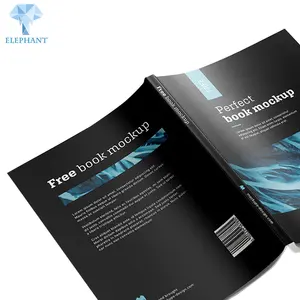Introduction to Practical Literature
Practical literature serves as an essential resource in various fields, offering insights, guidelines, and actionable strategies for everyday challenges and professional applications. This genre encompasses a wide range of topics, from self-help and business management to technical manuals and instructional guides. The effectiveness of practical literature lies in its focus on providing real-world solutions that readers can readily apply in their lives and work environments.
Types of Practical Literature
- How-To Guides: Step-by-step instructions that enable readers to accomplish specific tasks or learn new skills.
- Self-Help Books: Literature designed to improve personal development, mental well-being, and emotional intelligence.
- Technical Manuals: In-depth resources detailing procedures, specifications, and operational guidelines in technical fields.
- Business Books: Insights into management practices, leadership strategies, and productivity enhancements for professionals.
- Case Studies: Real-life examples that analyze challenges faced by individuals or organizations, along with practical resolutions.
Function and Features of Practical Literature
- Cognitive Engagement: Practical literature invites readers to think critically and apply theories to real-world scenarios.
- Accessibility: Written in a clear, concise manner, making complex ideas simple and easy to understand.
- Actionable Advice: Filled with explicit tips and steps that encourage immediate implementation.
- Variety of Perspectives: Offers diverse viewpoints and strategies, catering to a wide range of learning styles and needs.
- Supportive Multimedia: Many practical literature texts include diagrams, illustrations, and online resources to enhance understanding.
Applications of Practical Literature
- Education: Practical literature can supplement academic curricula, helping students grasp complex concepts.
- Workplace Training: Used for onboarding and ongoing education, this type of literature equips employees with necessary skills.
- Personal Development: Individuals rely on self-help and motivational books to achieve their personal goals and self-improvement.
- Technical Fields: Engineers, technicians, and IT professionals utilize manuals and documentation to ensure the effective use of equipment and software.
- Entrepreneurship: Aspiring business owners refer to practical literature to find insights on starting and managing successful companies.
Advantages of Practical Literature
- Enhances Knowledge Base: Readers gain actionable knowledge that equips them to handle various life and work challenges more effectively.
- Promotes Lifelong Learning: Encourages individuals to continually seek out information and improve their skills beyond formal education.
- Cost-Effective Solutions: Offers affordable alternatives to professional consultations or training programs.
- Encourages Independence: Empowers readers to solve problems on their own, fostering confidence and self-reliance.
- Increases Productivity: Practical advice helps individuals and organizations streamline processes, thus enhancing efficiency and output.















































